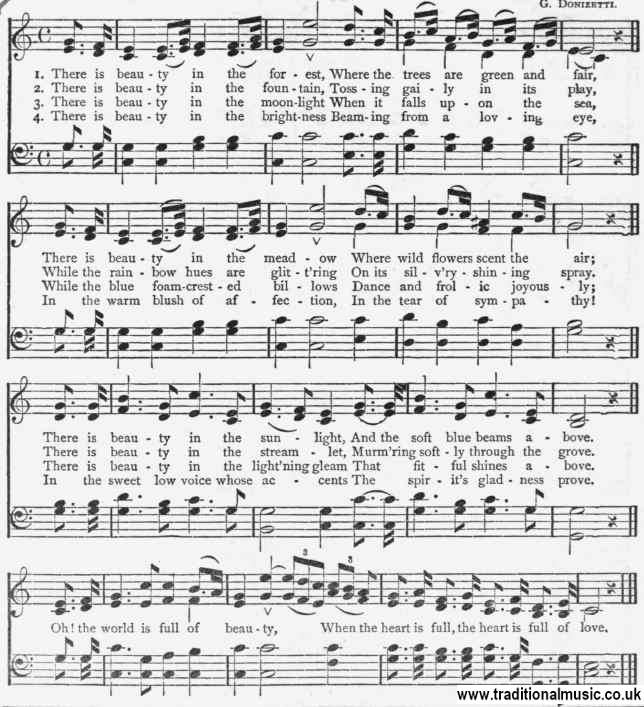Favorite Songs and Hymns For School and Home, page: 0230
450 Of The World's Best Songs And Hymns, With Lyrics & Sheet music for voice & piano.
| Share page | Visit Us On FB |
|
Mendelssohn delighted in the open air and beau�tiful scenery. When he was twenty, he staid some time at Chester, in England. He loved afterward to tell of the charm which the meadow and brook, the trees and grass, had for him there. He spent much time sketching and painting; but his head was full of music, and everything suggested a musical idea to him. He was very fond of carnations, and he set a bunch of them to music in the album of a daughter of his host, with a drawing of the flowers over the |
notes; not forgetting to set some delicate arpeggiation in the music for the scent of the flowers. On seeing the younger sister with some bell-shaped flowers Li her hair, he said that the fairies might dance on the trumpets, and he set them to a capriccio. He never tired of merry-making, and one afternoon towards dusk, he, with a number of young people, was one of a happy young company that was picnick�ing in a thicket. Some one gaily proposed a fire; and all began to drag the boughs and twigs into place# |
||
|
FULL OF BEAUTY |
|||
 |
|||
|
so that they soon had a fine bonfire. While still lin�gering around it. Mendelssohn began to ask for some music, but nothing could be found save a worn-out fiddle of the gardener's. Mendelssohn, all undis�mayed, began to play, shouting with laughter at his performance; but soon there was a hush in the chat r.nd sport, and the'whole party sat spell-bound at the music which he drew from even that despised fiddle. He would sit for hours improvising dance-tunes, and liked nothing better than to entertain his friends with |
his music. He always looked back on this visit to Chester as one of the brightest spots in a bright life.
Immortality! This master thought which should be most in our minds, ever present with us, is one to which millions seem never to give a passing moment of serious reflection. They are as their dogs and their horses. Of all human beings, the clergy not excepted, those in the educational work should ponder most this sublime truth, and make it familiar as their native air to the youth who are passing through the schools. |
||